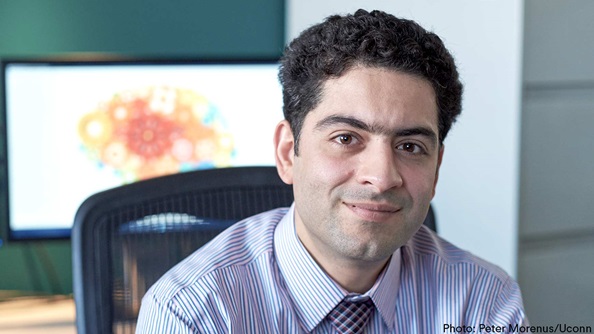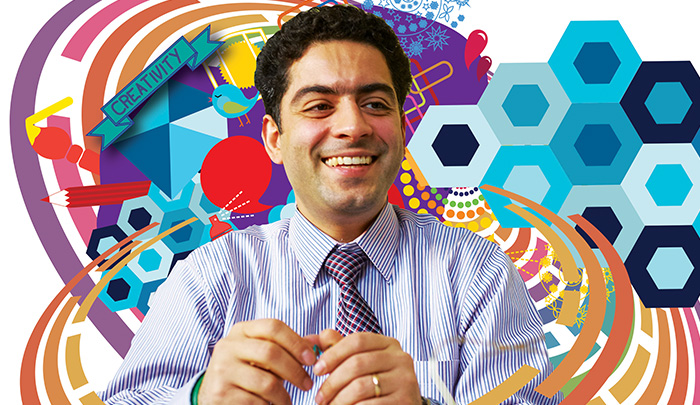
By Mary Lord
Just 34, Arash Zaghi can point to a string of achievements. After graduating at the top of Iran’s prestigious Sharif University of Technology, he worked as a project engineer in Tehran while earning a master’s in earthquake engineering. Arriving in the United States, he whipped through a Ph.D. in civil engineering from the University of Nevada, Reno in just three years. There, he developed a seismic-design method for a novel connection detail that was incorporated in the new San Francisco-Oakland Bay Bridge.
Joining the University of Connecticut in 2011, Zaghi soon won back-to-back awards for teaching excellence. He also established a research lab to study the design of multihazard-resilient infrastructure, launched a start-up, and filed for a patent for an ingenious bridge-column system. His latest endeavor, however, veers sharply away from roads and girders. It’s based on a discovery about himself.
Three years ago, Zaghi was diagnosed with attention deficit-hyperactivity disorder. Now, backed by a two-year, $150,000 Research in Engineering Education grant from the National Science Foundation, he is studying the creative thinking and risk-taking potential of engineering students with and without ADHD and identifying obstacles to success. “This project has the potential to improve education for all students and transform the way we teach engineering,” says Zaghi. He argues that risk-taking, impulsivity, procrastination, and focus problems – common traits in the 4 to 7 percent of the population who have ADHD – often coexist with significant talents. Properly steered, these talents can spark the “revolutionary change” needed to solve such “broad, complex problems” as cybersecurity or global climate change, he says.
Read More @ American Society for Engineering Education: PRISM
